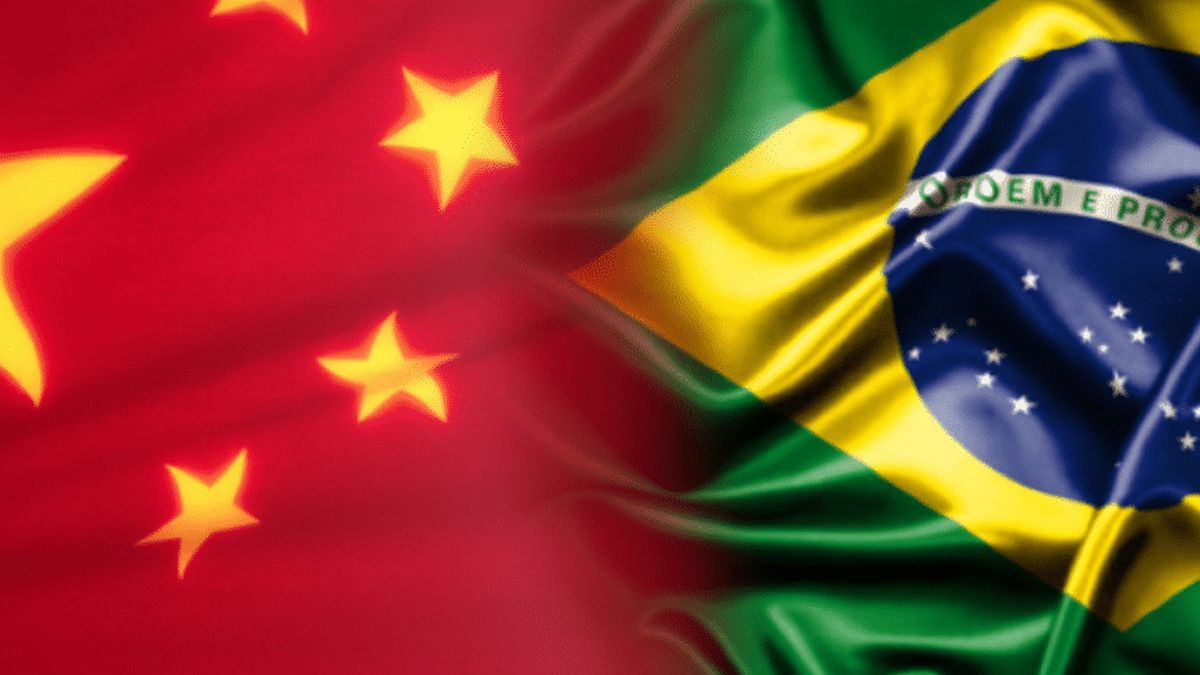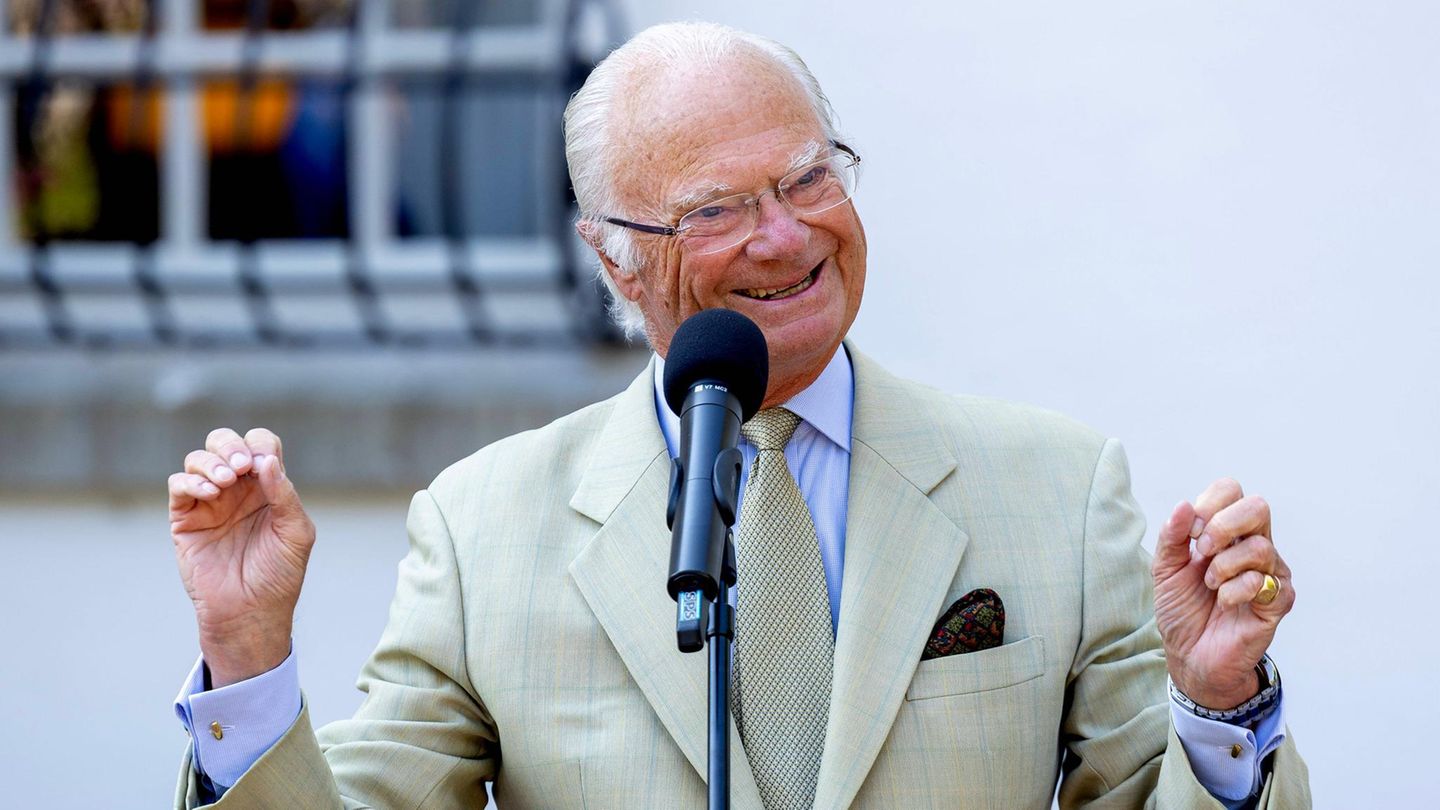What do we trade with China and Brazil?
“We not only sell agricultural products, but also vehicles and other industrial goods.”says Glustein. Thus, he agrees with Massa by pointing out that endangering the export regime without any type of immediate compensation is a risk for the country’s economy. And he assures that the entire country, that is The provincial productive sectors are involved in these two great destinations.. However, in smaller proportions than what Massa said.
In the first half of 2023, just three provinces sold more than 20% of their exports to China and these were Catamarca, with 45% and Entre Ríos and La Pampa, with around 20% each.
Marzorati details that “Exports to Brazil are mainly manufactured goods of industrial origin (70% of what we export): vehicles, petroleum oil, meat, fuel, wheat, wine, milk and oils.” They are mainly intermediate goods, capital goods and vehicles: soybeans, vehicles, auto parts, body parts, gearboxes, engines.
China Argentina flags
Argentina and China currently have a good political relationship.
Ambit
The Sales to China are mainly primary products and manufactures of agricultural origin (between the two they add up to more than 70% of what we export to China): soybean oil and beans, meat, shrimp and prawns, barley and lithium.
“The China’s imports are mainly intermediate goods, capital goods and their parts: vehicles (the third behind Brazil and Mexico), electrical supplies, engine parts, auto parts and solar panels,” he details.
Meanwhile, as pointed out by economist from the University of Avellaneda, expert in foreign trade Federico Vaccarezzathe European Union represents only 20% of our exports and the same percentage of imports.
Do the political agenda and foreign trade go hand in hand?
Thus, the analyst maintains that “the proposal from La Libertad Avanza (LLA) should separate the topics from international political agenda of those of the commercial agenda”. For him, there may or may not be ideological influence on a country’s international political agenda, but “as far as trade policy is concerned, what prevails are the interests and benefits of the country and not the ideologies of the governments.”
Vaccarezza highlights that the Argentina’s commercial relationship with developing economies is more important for our country than the one it has with more developed ones. So it would be a mistake to cut trade links with China and Brazil.
And, on the other hand, he mentions that, “even though the LLA candidate says that they are going to unilaterally remove tariffs and open the economy, the developed markets are not going to be interested in signing a free trade agreement with our country.” And, if they do, we would be at the mercy of the conditions they are going to set for you, they will be asymmetrical and negative.
“Not differentiating between economic and ideological needs is something that Milei is not being able to differentiate and that can be very dangerous for our economy because of the need we have to maintain those markets,” says Vaccarezza.
Argentine exports to China and Brazil: what may come
Marzorati describes that, in recent years, our country has done a lot of work opening the meat market towards China. In this framework, the relationship with the asian giant It has been maintained in recent years and that market has been taking preponderance over time in our trade balance. Thus, he evaluates that, “undoubtedly, has enormous potential forward because it is a very big market.”
On the other hand, it indicates that “Brazil is a historical partner of Argentina and it is the main bilateral in the region. However, he considers that “together we have the challenge of deepening intraregional trade, even outside of Mercosur.”
However, Marcelo Elizondo, expert in international trade, does not coincide with that view since it warns that, in the relationship with China, Argentina does not have any agreement that generates any preference in the commercial relationship with that country. “There is no free trade agreement, no agreement on tariff preferences or investment protection,” he says.
ALBERTO FERNÁNDEZ JAIR BOLSONARO.jpg

Alberto Fernández and Jair Bolsonaro did not have a good bond.
Image: Télam
Thus, he believes that, If Milei wins and carries out the breaking of relations with China, it is most likely “that there will be no major changes”. And he explains that what the candidate says is that he is not going to negotiate any incentives from the Government, so there would be no major changes. “Today the governments have a good relationship and Argentina has achieved some benefits and agreements, such as swaps and investment announcements. That could be lost, but not much more,” says Elizondo.
Now, Regarding Brazil, he recognizes that the case “is different.” Because? Because we have Mercosur and, in that case, he says that the problem will be if Milei wants to propose unilateral opening to trade. “This attacks Mercosur, although it has been done in the case of Brazil, which was even accepted within the framework of the Mercosur, but it is something that must be negotiated,” he points out. However, on the other hand, he says that Milei, in principle, is not talking about breaking that bloc, but rather does not want to have an intense political link with the president of that country. In fact, he remembers that, beyond the sympathy between both presidents, Jair Bolsonaro and Alberto Fernándezthat did not affect trade.
For him, “the greatest enmity or friendship between countries does not guarantee commercial ties.” But we will have to see how Milei’s position is finally expressed if he wins the elections. Great is the fear of a rupture among foreign trade experts and the uncertainty of what is to come is the hallmark of these moments facing the runoff..
Source: Ambito




